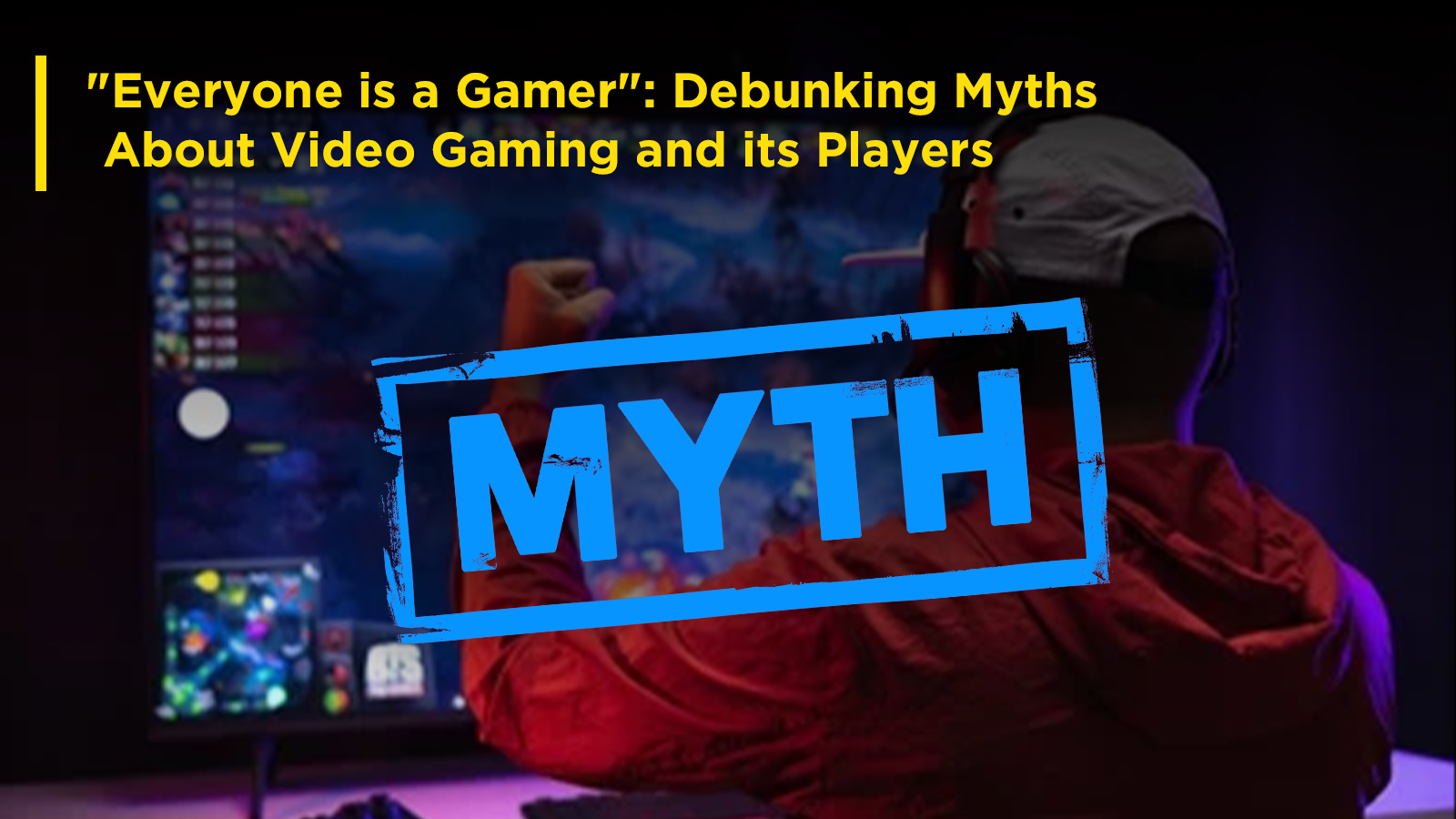- theplaynet7
- May 25, 2023
- Comments (0)
“Everyone is a Gamer”: Debunking Myths About Video Gaming and its Players
In recent years, video gaming has become a mainstream form of entertainment, attracting a diverse and ever-growing audience. However, there are still many misconceptions and stereotypes surrounding gamers and the world of video games. In this blog post, we aim to debunk some of the most common myths about video gaming and those who play, highlighting the widespread appeal and positive aspects of this interactive medium.
Table of Contents
ToggleMyth 1: Gamers are lazy and socially isolated
Contrary to popular belief, gamers are not necessarily lazy or socially isolated individuals. In fact, video games often require problem-solving skills, strategic thinking, and quick reflexes. Many games also foster collaboration and teamwork, as players engage with friends or compete with others in online multiplayer environments. Furthermore, gaming communities, both online and offline, provide platforms for social interaction, friendship, and even professional networking.
Myth 2: Video games are solely for children and teenagers
While it’s true that video games have historically appealed to younger audiences, the demographics of gamers have significantly broadened. According to recent studies, the average age of a gamer is around 35, and a significant proportion of gamers are adults. People from all walks of life, regardless of age, gender, or background, can find enjoyment in gaming. The industry has responded to this diversification with a wide range of genres, themes, and complexities to cater to various interests.
Myth 3: Video games promote violence and aggression
One of the most persistent myths about gaming is that it fosters violence and aggressive behaviour. However, the link between video games and real-life violence has been widely disputed by scientific research. While it’s true that some games feature violence, it is important to distinguish between virtual and real-world actions. Studies have consistently shown that the majority of gamers can differentiate between fantasy and reality, and gaming can actually serve as a cathartic outlet for stress and frustration.
Myth 4: Gamers are antisocial and introverted
Contrary to the stereotype of gamers being antisocial and introverted, gaming has evolved into a highly social activity. Many games today encourage collaboration and communication, often requiring players to interact and coordinate with others to achieve goals. Online multiplayer games, in particular, offer extensive social features, such as voice chat, in-game messaging, and forums, which facilitate communication and create communities centred around shared interests.
Myth 5: Gaming has no benefits or real-world applications
Video gaming offers numerous benefits that extend beyond mere entertainment. Research suggests that gaming can enhance cognitive abilities, including problem-solving, spatial reasoning, and memory. Some educational institutions have even incorporated video games into their curriculum to promote interactive learning. Additionally, the gaming industry has inspired advancements in technology, such as virtual reality and augmented reality, which have practical applications in various fields, including healthcare, education, and training simulations.
Conclusion:
The notion that gaming is limited to a specific type of person or that it is a solitary and frivolous activity is outdated and misguided. The reality is that gaming is a diverse and inclusive form of entertainment that transcends age, gender, and social boundaries. The growing popularity of video games and the expanding gaming community are a testament to their broad appeal. By dispelling these myths, we can foster a better understanding and appreciation for gaming as a legitimate form of expression, social interaction, and personal development.
FAQS
- Does gaming affect life?
Video games can improve mental skills, such as: Problem solving and logic. Hand-eye coordination, spatial skills and fine motor coordination.
- Who invented gaming?
The Father of the Video Game: The Ralph Baer Prototypes and Electronic Games Video Game History. From the earliest days of computers, people have found ways to play games on them.
- Does gaming affect my brain?
“Like stimulants, video gaming can increase grey matter in the brain,” says Dr. Manos. “Gray matter provides interconnectivity and allows parts of your brain to communicate with other parts of your brain and advance your self-perception.”
- How much gaming is too much?
For kids over the age of 6, the American Academy of Pediatrics says no more than 60 minutes on school days and 2 hours on non-school days. Kids under 6 should spend closer to 30 minutes.
- What is gaming addiction?
Video game addiction is characterised by severely reduced control over gaming habits, resulting in negative impacts on daily functioning, including personal, social, educational and occupational responsibilities.
- Tags : EsportsGamingGaming Updates
